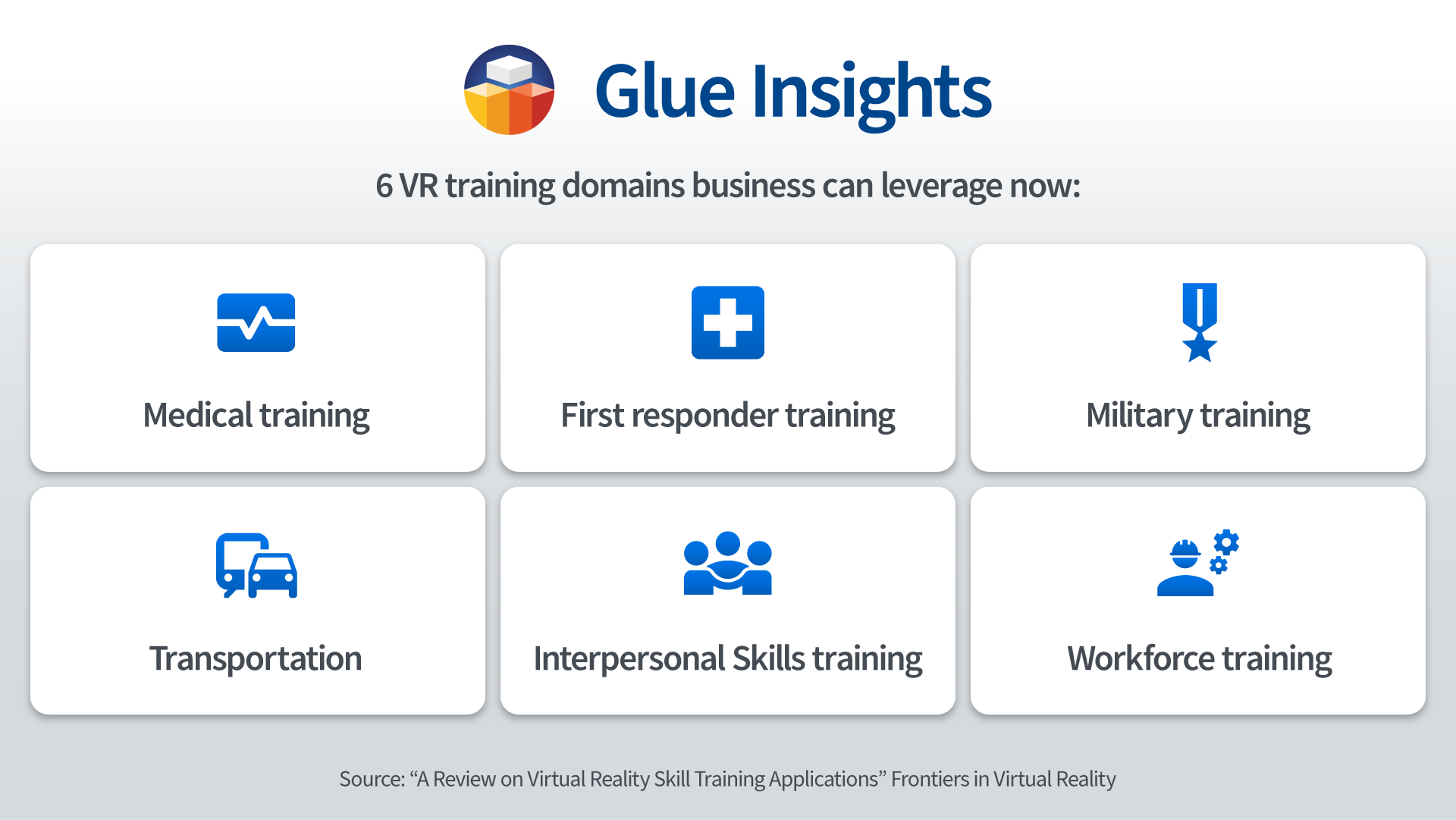“A Review on Virtual Reality Skill Training Applications” study examined 48 VR training applications to validate the VR training effectiveness. The study concluded that VR training is well suited for the following six training applications:
1. Workforce training
For manufacturing or industrial employees, virtual training helps to reduce productivity loss during the training as well as resolves the lack of qualified training instructors.
2. Interpersonal Skills Training
VR helps to develop critical interpersonal skills: openness, empathy, and verbal and nonverbal communication. That helps with effective training of employees to increase knowledge and skills.
3. Medical training
VR medical training offers a training environment that helps to reduce the errors of healthcare workers and improve patient safety.
4. First responder training
This training is for people who frequently face dangerous situations. The cases are difficult and costly to set up for training in the real world and thus VR offers an effective way to simulate any situation and train participants to act correctly.
5. Military training
VR is beneficial for technical training in the army as well as for simulating different conditions of the environment. Moreover, VR simulation allows to reduce the costs of training by replacing expensive and rare equipment for training.
6. Transportation training
Vehicle simulations in VR allow to train in a safe, controlled environment. Some software can even analyze driving behavior and detect driver mistakes.
Virtual reality training offers multiple benefits for both organizers and participants. One common factor for all the cases is the immersive experience in a shared virtual space that allows one to comprehend the situation as if it is happening in a real-life.
Learn more about why you need immersive VR education in your workplace.
Source: A Review on Virtual Reality Skill Training Applications


